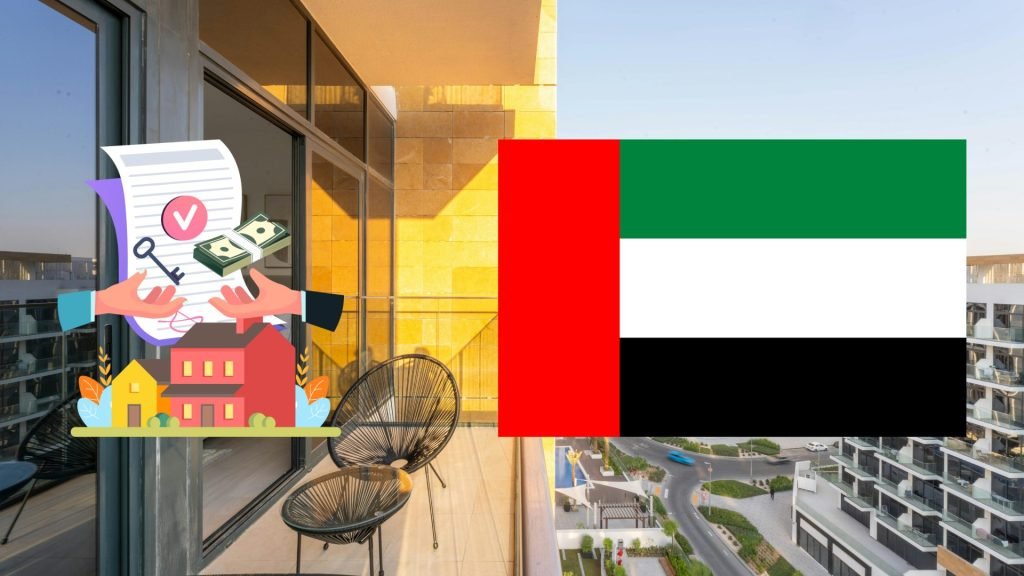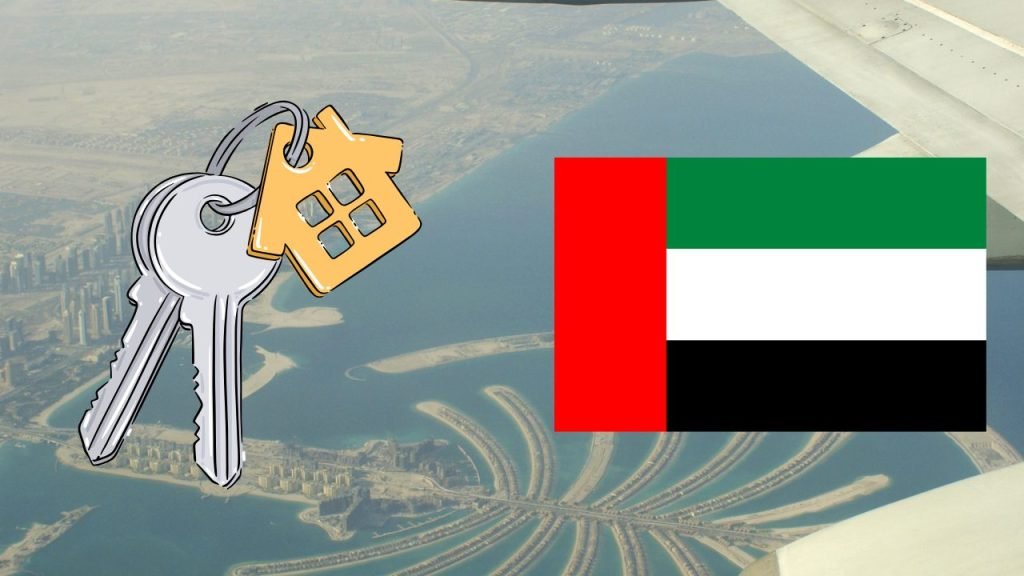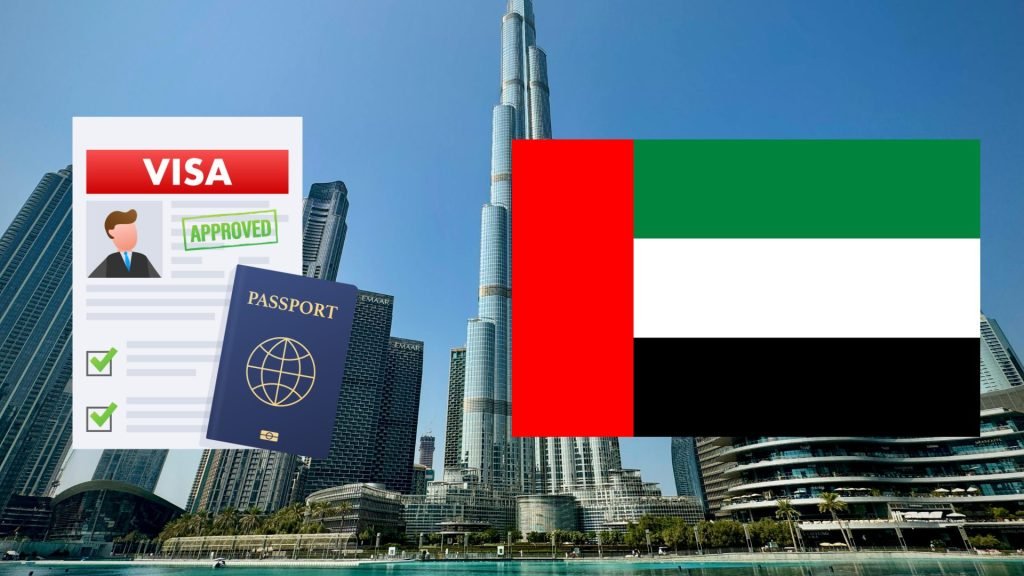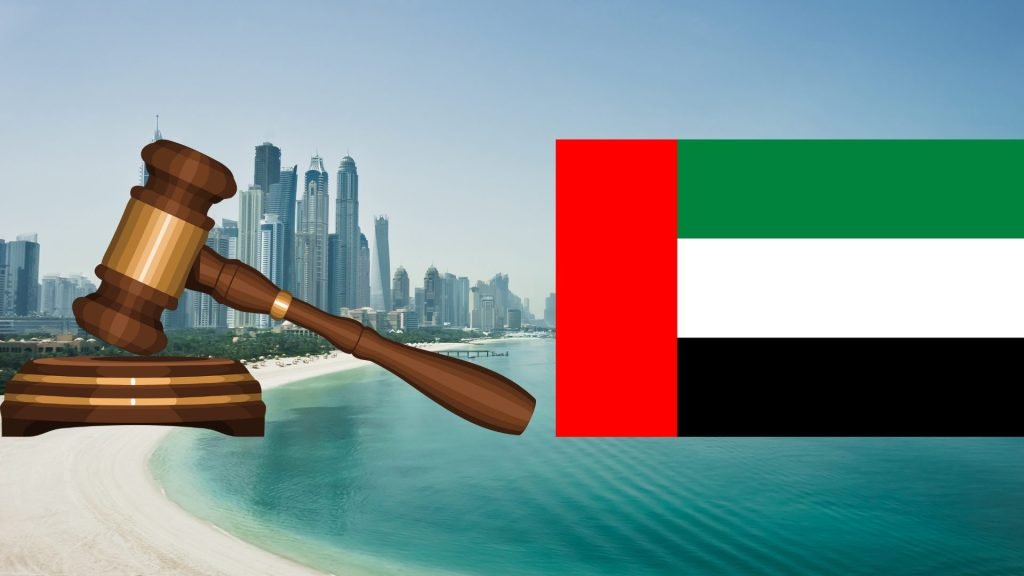What is driving in Dubai like? Driving in Dubai is a unique experience for many people. The city is built around cars, with wide highways, ultra-modern infrastructure, and surprisingly low fuel prices. This is very different from what you see in many other world cities and makes driving much more comfortable.
For those accustomed to Dutch traffic jams, narrow streets, and high gas prices, driving in Dubai often feels like a breath of fresh air. But make no mistake – although the roads are excellent, the traffic is not always easy to navigate.
In Dubai, you share the road with a mix of driving styles: from luxury cars that are going fast to taxis and newcomers still finding their way. Driving behavior is sometimes unpredictable, with motorists changing lanes without signaling, speeding, or lingering slowly in the left lane. However, driving in Dubai is generally manageable as long as you keep a cool head and drive defensively.
Additionally, it’s important to become familiar with local rules, fines, and behavioral norms. A mistake that might only result in a warning in the Netherlands can lead to a hefty fine or even legal consequences in Dubai. Think of hand gestures, tailgating, or holding a phone in your hand. At the same time, the city offers – especially for those living here long-term – the ultimate driving convenience: good roads, ample parking spaces, and quick access to everything you need.
A disadvantage that you often hear mentioned is that traffic can get quite congested. Dubai is a big city with many cars on the road. This can lead to traffic jams, sometimes significantly increasing the time it takes to reach your destination.
In short: driving in Dubai is comfortable and efficient, provided you are well prepared. In this article, you’ll read everything you need to know as a Dutch person to hit the road safely, legally, and stress-free.

Why drive in Dubai?
Why drive in Dubai? Dubai is a city that revolves around mobility and comfort. Although public transport is well-organized with metro, taxis, and buses, in practice it’s not always the most efficient way to get around. Having your own car naturally offers you a lot of freedom and gives you the ability to go wherever you want.
Distances between residential areas, offices, shopping centers, and schools are sometimes large. It’s also extremely hot in the summer months, making walking or cycling unpleasant. A personal (air-conditioned) car offers a good solution in this case.
Having a car in Dubai means you’re not dependent on taxis or public transport. You can go wherever you want at any time – something that many people, who are used to having their own car, experience as a big advantage.
Additionally, fuel prices in the United Arab Emirates (UAE) are very low compared to other European countries (In the Netherlands, you sometimes pay up to €2.50 per liter, while in Dubai it’s around €0.70 per liter), making driving affordable.
Add to that the fact that roads are wide, well-maintained, and modern, and you understand why many Dutch people choose to get behind the wheel themselves and drive in Dubai.
Are tourists or expats allowed to drive in Dubai?
Are tourists or expats allowed to drive in Dubai? Yes, you are allowed to drive in Dubai as a tourist, but there are clear rules you must follow. As a tourist or temporary visitor, you can drive a car with a valid international driver’s license. Many car rental companies also require a credit card and a minimum age of 21 years. This requirement is more about car rental companies wanting to minimize their risk and has nothing to do with Dubai’s legislation.
If you emigrate to Dubai and receive a residence visa, your status changes. You can continue to drive temporarily with your international driver’s license, but once you have received your residence permit, you are required to apply for a UAE driver’s license.
Fortunately, most Europeans can exchange their driver’s license for a UAE driver’s license without having to retake a driving test, as most European countries are on the list of countries with an exchange agreement. For this, you need:
- Your original driver’s license + copy
- Valid passport + copy
- An eye test at an accredited optician
- A copy of your residence visa
- Your Emirates ID
Note: Sometimes you may also need to provide a translated driver’s license or a consular declaration, depending on the latest regulations of the RTA (Roads and Transport Authority).

Traffic Rules in Dubai
Dubai is known for its modern infrastructure, but also for its strict enforcement of traffic rules. This means you need to be well-prepared for what is and isn’t allowed.
Important Traffic Rules in Dubai
- Which side of the road do they drive on in the UAE? Driving is done on the right side of the road.
- Seatbelts are mandatory for all occupants.
- Phone calls while driving are only allowed hands-free.
- Using a mobile phone in your hand can lead to high fines.
- Overtaking on the right is not allowed, and dangerous lane changing is severely punished.
- Not stopping at a pedestrian crossing or running a red light can lead to fines or even imprisonment.
- Do not drink a drop of alcohol if you’re going to drive.
A particular point to note: showing anger or making obscene gestures in traffic is punishable. What might be seen as frustration or ‘normal’ communication in the Netherlands can lead to police reports, fines, or even deportation in Dubai.
Finally: Dubai is dotted with speed cameras and traffic cameras, which are active 24/7. Fines are automatically registered and can be viewed and paid digitally via the Dubai Police app or the RTA website. These are not just speed cameras, but can also detect other violations.
That’s why it’s important to drive calmly in Dubai and always follow the rules carefully. This often goes wrong with many tourists and expats, as Dubai is also the city where you can rent very beautiful sports cars.
Speed Limits and Speed Margins
In Dubai, speed limits are clearly indicated with traffic signs, but they can vary depending on the type of road. Generally, the following applies:
- Residential areas: 25-40 km/h
- City roads and main roads: 60-80 km/h
- Highways: up to 120 km/h (with in some cases a speed margin up to 140 km/h)
What stands out is that a so-called buffer of 20 km/h is applied on many roads within Dubai, with the exception of the emirate of Abu Dhabi. This means that if the maximum speed is 100 km/h, for example, the speed camera only activates at 121 km/h. Note: this margin is not an official license to drive faster — always stay below the limit to avoid fines.
Traffic signs are in Arabic and English, and speeds are indicated in kilometers per hour, not miles.
Fines and Traffic Violations
Dubai is known for its strict traffic enforcement. Fines can amount to thousands of dirhams for seemingly small mistakes. Here are some common fines that you as a driver should be aware of:
Examples of fines:
- Driving without a seatbelt: AED 800
- Manually calling or texting while driving: AED 800 + 4 penalty points
- Running a red light: up to € 12,500 + impoundment of the car (source: Nederlandwereldwijd)
- Unnecessary honking or aggressive driving behavior: AED 500 to AED 2,000
- Not indicating when changing lanes: AED 400
- Not giving right of way at a pedestrian crossing: AED 500
- Illegal parking (e.g., in a disabled spot): AED 1000 or more
You can view and pay fines online via:
- The Dubai Police app
- The RTA website
- Physical kiosks in RTA centers
Early payment pays off: paying within 60 days sometimes gives a discount on the fine amount.
Important Behavioral Rules on the Road
In addition to the formal traffic rules, there are also a number of informal behavioral rules and customs in Dubai that you as a Dutch driver should know:
- Flashing headlights usually means the driver behind you wants you to get out of the way (especially on the highway).
- Do not respond with gestures – no matter how frustrating some situations may be, hand gestures can be considered offensive and have legal consequences.
- Locals sometimes drive aggressively: overtaking without signaling, suddenly changing lanes, or tailgating are common. The advice: don’t get carried away, stay calm, and maintain distance.
- Always use your turn signals. Not doing so not only results in fines but is also a source of irritation and danger.
- Taxi and bus lanes are only intended for registered vehicles. Driving on these with a private car often results in immediate fines.
In short: be a defensive and polite driver. This way, you’ll drive safer and avoid fines. In Dubai, there are cameras in many places that can automatically issue you a ticket for many violations. Even if you think you can get away with it momentarily, you probably can’t.

Parking in Dubai
Parking in Dubai is usually well-organized, but not always free. There are different types of parking zones managed by the RTA (Roads and Transport Authority), all with their own rates and time restrictions.
How much does parking cost in Dubai?
- Paid parking usually applies from 8:00 AM to 10:00 PM, except on Fridays (free in many zones).
- Rates vary from AED 2 to AED 10 per hour, depending on the location.
- You can recognize paid zones by clear signs and zone codes (e.g., Zone A, B, or C).
How can you pay for parking?
- SMS (to 7275 with license plate and zone)
- RTA Parking app
- NOL Card (prepaid public transport/parking card)
- Street parking meters
Free parking:
- Some shopping centers, mosques, and residential areas offer free parking, often with a time limit (e.g., first 2 hours).
- Pay attention to the signs – some locations are only free on holidays or Saturdays.
Tips:
- Always read the instructions on the sign at the parking spot.
- Do not park in spaces reserved for disabled people or emergency vehicles.
- Pay attention to the direction of parking – parking in the wrong direction (against the flow of traffic) can result in a fine.
Paying Tolls in Dubai
Do you have to pay tolls in Dubai? Yes, you have to pay tolls in Dubai. Dubai uses an electronic toll collection system called Salik, which works with automatic vehicle detection at toll gates.
How does Salik work?
- You buy a Salik tag (sticker with chip) at a gas station or RTA office.
- You stick this on your windshield.
- Every time you pass through a toll gate, AED 4 is deducted from your Salik balance.
Locations of toll gates
Where do you pay tolls in Dubai? Some well-known locations where Salik is active:
- Sheikh Zayed Road (Garhoud Bridge, Al Maktoum Bridge)
- Al Safa
- Al Mamzar north south
- Al Barsha
- Airport Tunnel
At certain times, you don’t pay tolls on these roads, but this depends on the road.
Important when paying tolls
- No Salik tag or insufficient balance means a fine of AED 100 to AED 400 per violation.
- You can top up your balance via the Salik app, RTA website, or kiosks.

Renting a Car in Dubai
For those staying temporarily in Dubai or who have just arrived, renting a car can be a good solution. The rules are simple, but you need to be prepared.
Requirements to rent a car
- Minimum 21 years old
- Valid international driver’s license + original driver’s license
- Credit card in the name of the renter (for deposit)
- Passport and possibly visa or Emirates ID
How much does it cost to rent a car in Dubai?
- Rental prices start from about AED 50 per day for a basic car.
- Luxury cars or SUVs can range from AED 150 to AED 1000+ per day.
- A supercar easily costs thousands of AED. For example, a Lamborghini usually costs around 3000 AED per day.
- The deposit is usually between AED 1000 and AED 5000.
Insurance included?
Yes, usually a third-party liability insurance is included.
- Optionally, you can take out comprehensive insurance against damage and theft.
- Read the terms and conditions carefully, as the deductibles and conditions may vary.
Please note
- Some rental companies do not allow you to use the car outside the UAE. You may have to pay a surcharge for this.
- Damage, traffic violations, and toll fees are usually charged afterwards.

Buying a car in Dubai
Ga je emigreren naar Dubai? Als je van plan bent om langere tijd in Dubai te wonen, kan het kopen van een eigen auto een logische keuze zijn. Dubai heeft een groot aanbod aan nieuwe en tweedehands voertuigen.
New or used
- New cars are relatively affordable compared to the Netherlands, especially Japanese and Korean models.
- Used cars are available everywhere through car dealers, private sellers, or platforms like Dubizzle.
Required documents
- Valid UAE driving license
- Emirates ID
- Residence visa
- Passport + copy
- In case of lease: salary certificate, bank statements, employer’s statement (this varies per company)
Additionally required for used cars
- Current vehicle registration card
- Technical inspection (passed inspection)
- No outstanding fines on the license plate
Registration costs
- Registering a new vehicle: from AED 420
- Used car transfer: + AED 350 transfer fee
- Opening a traffic file (one-time): AED 220
Tip: Always check if the car has any damage history via the RTA portal or request an inspection report from an authorized inspection station.
Insuring your vehicle
In Dubai, it is legally required to have insurance for every registered vehicle. You simply cannot drive on the road without insurance.
Types of insurance:
- Third-party liability insurance: only covers damage to third parties
- Comprehensive insurance: covers damage to third parties and your own vehicle, including natural damage or theft
Car insurance costs:
- On average, this is between 1.25% and 3% of the car’s value per year
- Young drivers or people with previous claims often pay more
- Premium can be lower with a “No Claims” history (e.g., bonus/malus)
Where to compare?
- Platforms like InsuranceMarket.ae, Policybazaar UAE or Souqalmal.com are useful for comparing insurers
- Pay close attention to terms, coverage, and deductibles
Insurance documents are usually valid for 12 months. You often get a grace period of 30 days after the insurance expires to renew without penalty.
Annual inspection and registration renewal
Every vehicle in Dubai must be inspected annually before the registration can be renewed. This also applies to newly purchased cars, after the first year.
Where to have your car inspected?
- At an authorized Tasjeel station or RTA inspection center
- Inspection covers things like brakes, exhaust, lighting, suspension, and general condition of the vehicle
Renewing registration
- Online via the RTA website or app
- At a physical RTA office
- Costs: approx. AED 350 – 500 depending on the vehicle type
What if you’re late?
- For each month you’re late with registration, you’ll receive a fine of AED 25
- Fines must be paid in full before you can renew
Note: without valid registration and insurance, you risk a fine, vehicle confiscation, or even penalty points on your license.






